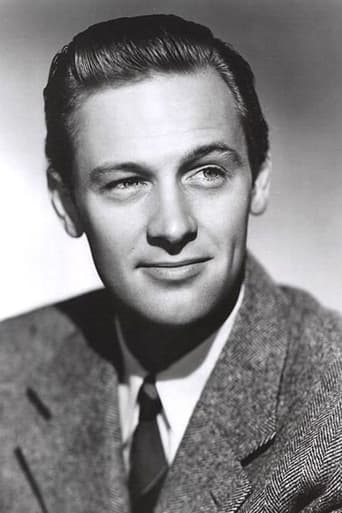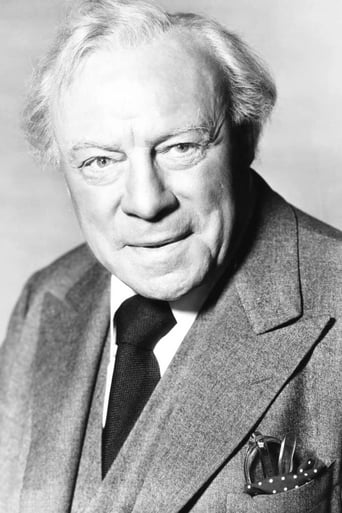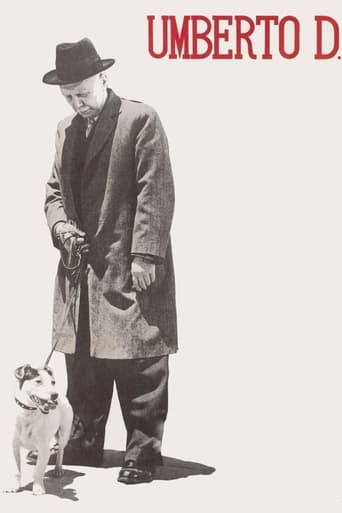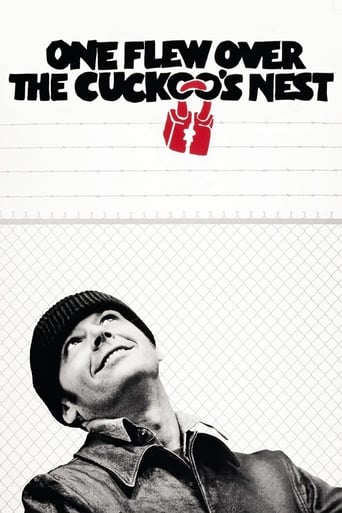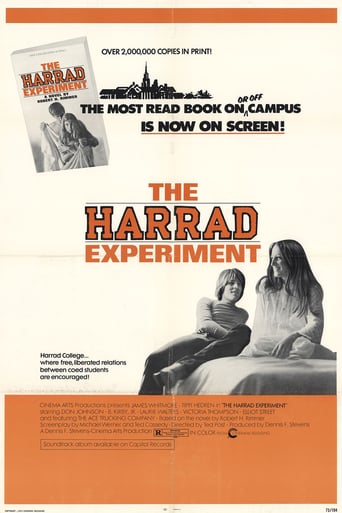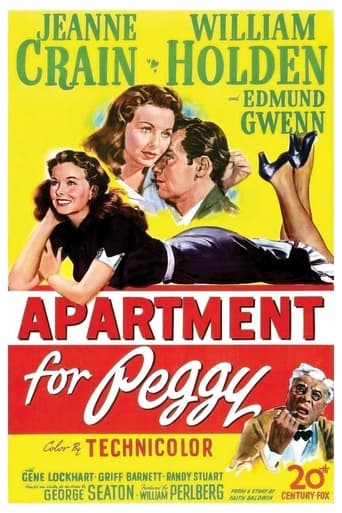
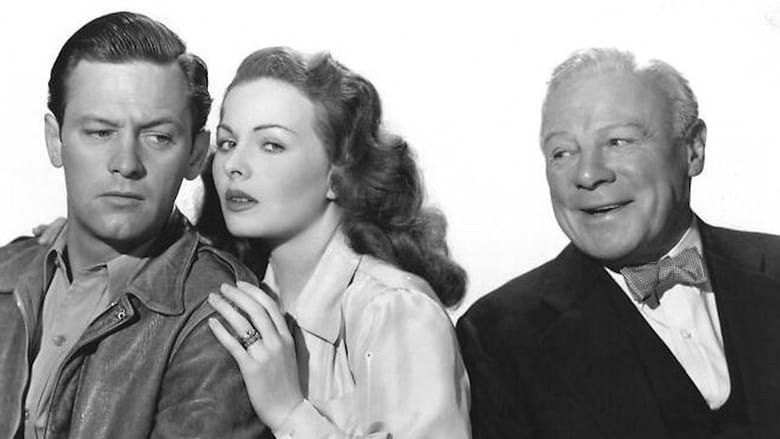
Apartment for Peggy (1948)
Professor Henry Barnes decides he's lived long enough and contemplates suicide. His attitude is changed by Peggy Taylor, a chipper young mother-to-be who charms him into renting out his attic as an apartment for her and her husband Jason, a former GI struggling to finish college.
Watch Trailer
Cast
Similar titles
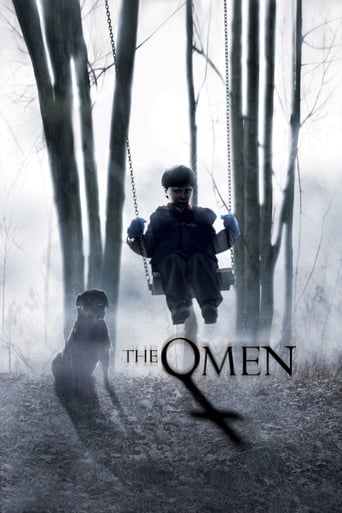
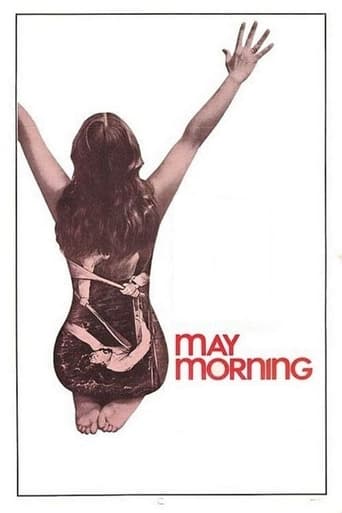

Reviews
What a beautiful movie!
Although I seem to have had higher expectations than I thought, the movie is super entertaining.
Let me be very fair here, this is not the best movie in my opinion. But, this movie is fun, it has purpose and is very enjoyable to watch.
By the time the dramatic fireworks start popping off, each one feels earned.
instead it is optimistic yet realistic about the struggles people had after WWII - the GIs turned college students trying to push their way back into the work force, and the older people pushed out by the returning troops.This was an enjoyable film, despite some sad moments. William Holden and Jeanne Crain are a young married couple with a baby on the way. Holden is a war veteran who has returned home from WWII and under the GI Bill, he is attending college. He is studying in hopes of becoming a chemistry teacher. Crain plays his young wife who is also expecting their first child. At the beginning of the film, they are living in a cramped camper and are forced to locate new housing. Living on only Holden's stipend, things are tight and they're barely getting by. Much of the tension between the couple is Crain's insistence on Holden finishing college and Holden's concern about the lack of income and his feeling of failure that his wife is having to forgo things like refills on prescriptions due to lack of money. He is tempted to take a job in Chicago selling cars, but his real dream is to be a teacher and Crain is determined to support that dream.Meanwhile, Professor Henry Barnes (portrayed by Edmund Gwenn), an ex-philosophy professor at the college is depressed about having retired. He is healthy and vital and feels that he was forced into his retirement. He confides to his friend, a fellow professor, that he is planning on committing suicide. He makes this decision calmly and rationally, explaining that he no longer feels needed or useful and no longer wants to be a drain on society. He ends up being examined by a doctor who deems him healthy. Gwenn asks the doctor to prescribe him sleeping pills. The doctor agrees, but will only dispense two pills at a time to prevent Gwenn from using them to commit suicide. However, Gwenn is stockpiling his "two pills" in order to gather enough to overdose on.Gwenn ends up meeting Crain randomly on a park bench and he is immediately taken by her enthusiasm and youth. She ends up telling him about her housing dilemmas. Before Gwenn knows it, Holden and Crain are moving into his attic. They clean it up, re-purpose some of Gwenn's existing furniture and other items not being used in his home and fix it up to make it a habitable abode, despite it being small and rustic. Gwenn is impressed with the young couple's resourcefulness and determination. He ends up feeling needed by them as he supports Crain throughout her pregnancy and Holden during his schooling.There are a couple of sad events in the film that help add some drama and realism to the situation. The film has a happy ending, but it seems realistic and not contrived.I was really impressed by Jeanne Crain and the energy that she brought to her role, and Crain really makes this film her own. She runs the gamut of emotions from joy to sadness and does a great job. William Holden's role isn't that notable since he's more just there to interact with Crain and Gwenn, but after a big debut in "Golden Boy" he was relegated to minor roles, then came WWII. So, like his character in this film, this role is part of his effort to find his way back to his career post war.
What a beautiful, little-known piece this is. It deserves several viewings to appreciate all the nuances. Pay close attention to all that fast dialogue at the beginning, because the light banter turns to deep philosophical musing soon enough.What is there left to live for if you are far into retirement and your most beloved family members have predeceased you? How important are friendships in this case, inter-generational or otherwise? Is education a pointless luxury if you're down-and-out, expectant parents struggling even to get a roof over your heads?One key scene, for me, was the one in which the adopted Grandpa and Dad-to-be struggle to assemble some IKEA-type baby furniture together. Here we have the older generation, that had known pre-mass consumerism, when you sent off to the local craftsman for bespoke pieces. The prefab furniture here seems to symbolize the ever-widening cracks in the small, tight-knit communities that once existed. The younger generation is just as confused as the elder, trying to follow the cookie-cutter guide and match dowel RB to hole LT with screw B1. It's a touching tableau depicting young and old struggling to help each other make sense of a confusing, new reality.
A charming domestic comedy leavened a bit with some dark shades, which gives the movie a distinctive edge. It uses the post-WWII GI college boom and simultaneous housing shortage as plot points, which may confuse current viewers a bit. Gwenn plays a college professor who is contemplating suicide because he's being forced into retirement. On a chilly winter afternoon while feeding birds on a park bench, he meets up with chatty young Jeanne Crain, wife of GI student William Holden, who tells Gwenn how desperate they are for housing, especially with a baby on the way. Gwenn agrees to put in a good word for her with college administrator Gene Lockhart, and Lockhart decides to place the couple in Gwenn's attic, which Crain re-makes into a cozy little apartment. Of course, Gwenn is a bit cold about the whole thing at first, but eventually he warms to them, agreeing to teach an informal class for the GI wives who don't want to feel left behind by their husbands, and even giving up the idea of killing himself. There are complications: Crain suffers a miscarriage; Holden decides he doesn't want to wait for a degree and drops out to take a job at a used car dealership; Gwenn tries to talk him into coming back to school, and when he thinks he's failed, he returns to his suicidal ways, but all things are put right in the end. Much of the charm of the film is in its details: Crain is forever making up statistics to argue her side of any point; Gwenn cusses by reeling off the names of the books of the Bible; in the one moment that made me laugh out loud, Gwenn tells a bad joke to his class of housewives and Lockhart gives the camera a wonderful split-second reaction. I loved the use of the beautiful Irish song, "I Dreamt That I Dwelt in Marble Halls" in a couple of scenes.
(Filmed in 1948) Just imagine: You're a young newly-wed woman named Peggy, married to a veteran named Jason, he's just recently returned from the Navy after World War II. He has gone through some very rough experiences. He's going to the University and housing there is greatly in demand. This scenario happened to many vets who tried to get back into civilian life after up to 4 years of war (1941 to 1945).What's a wife to do? Especially when she's pregnant with their first child and the trailer they are now occupying will soon be reoccupied by the former tenants who are away having their own baby.In Peggy's case she is lucky enough to meet retired Professor Henry Barnes in a campus park. His desire is to be left alone as he feeds the birds, contemplates his loneliness, uselessness and desires to commit suicide. Her desire is to talk, tell him her troubles and see if he can help or knows anyone who can...and use lots of not so reliable statistics.Professor Barnes makes the mistake of mentioning the name of a friend, a fellow professor who had been in charge of campus housing at one time. He's hoping to distract Peggy and send her on her way. Which works, sort of.Imagine the Professor's surprise when Peggy shows up on his doorstep wanting to see his attic because she has been told it was used as housing for single men on campus at one time? This is just his good friend's way of getting even for being put on the spot like that. And he, also, realizes that his friend, Henry, is lonely and needs some distraction.It takes awhile but she talks herself past him and up the stairs. Then with more fast talking, warm smiles and lots of interest in 'Pops' (as Peggy has decided to call him), she wins him over. She and Jason get the attic.After Peggy and Jason move in Henry begins to feel more useful. He has family. But he...no, I won't tell you what he's up to...get the movie!Peggy involves 'Pops' and his band of retired cohorts in many projects where they use their educational training with others in mind. She is a fountain of thoughts and suggestions. They are willing vessels.Then a series of situations happen that turn all their lives around. Get it, see it, enjoy it!The cast alone makes it worthwhile. It stars Jeanne Crain as Peggy; William Holden as Jason; Edmund Gwen as Professer Henry (Pops) Barnes with the lovable Gene Lockhart (Cratchett in the original "Christmas Carol"), Griff Barnett and a cast of several young and old.

